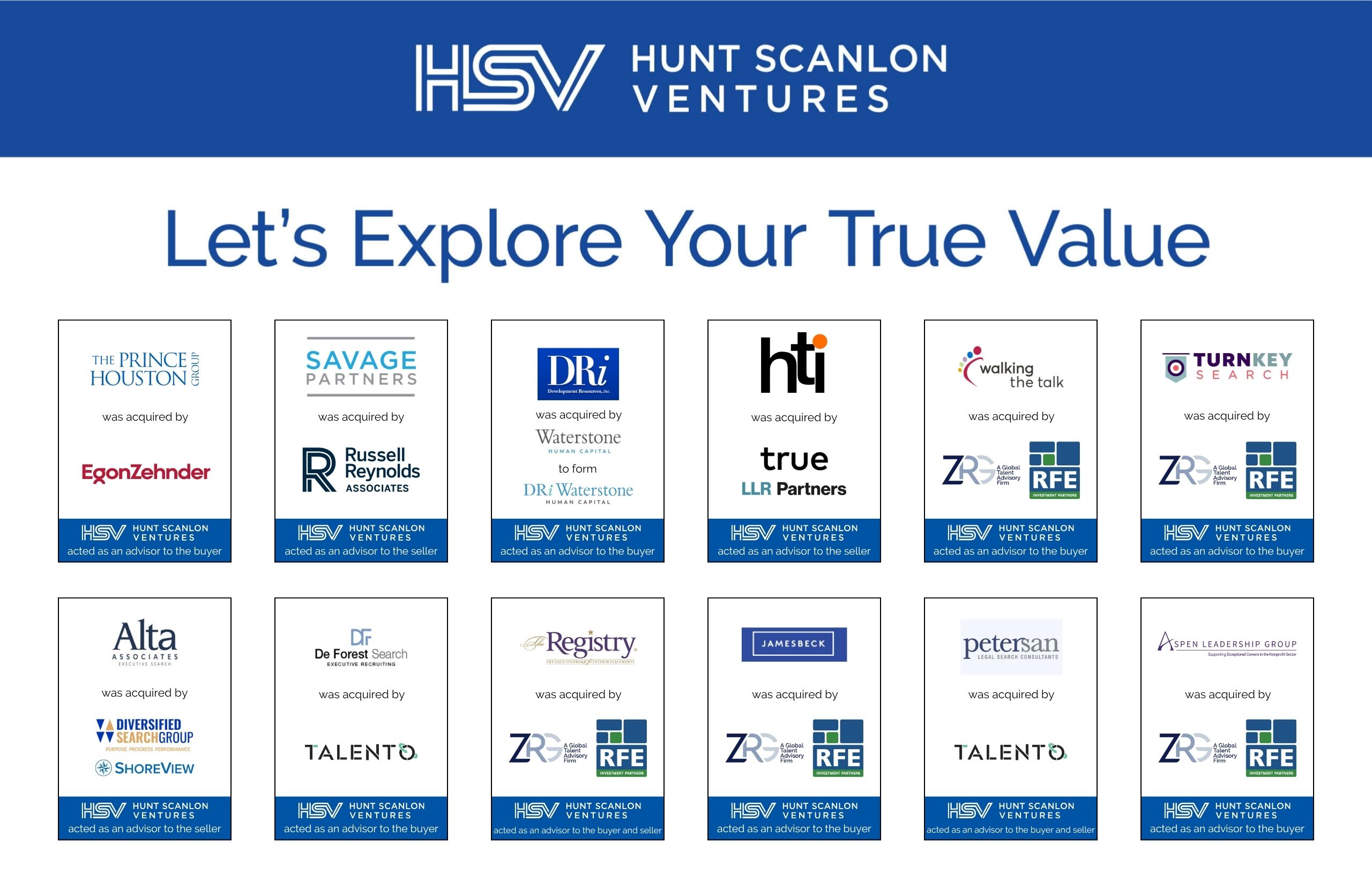Capturing the value-driving potential of top talent is increasingly vital in private equity. This reflects the ever-accelerating competition for the best leaders, while recognizing the untapped merit and practicality found in the perfect placement of portfolio company CEOs.
McKinsey & Company research shows that top-quintile chief executives have historically delivered total shareholder returns that are nine percent above industry peers in each year of their tenure. In industries such as financial services and automotive, these high-performing CEOs have achieved excess total annual returns of 16 percent on average.
McKinsey now refers to the value created by CEO overperformance, and the strategy around achieving these outsized returns, as “CEO Alpha.” The sponsors that get it right can build portfolio companies that attract and develop topflight CEOs and seed the industry with even more high-end talent for the future.
According to Boston-based McKinsey partner Marla Capozzi and senior partner Gary Pinkus in San Francisco, “CEO alpha is an untapped lever for private equity sponsors.” While it has been built into the public markets for years, they say, private markets are only beginning to see its’ full potential. With the vast majority of S&P 500 CEOs rising through internal promotions, public company CEOs spend their careers apprenticing and auditioning for the big job. But PE-funded companies source CEOs from far and wide, making perfect CEO placement rare. Enter CEO alpha.
Below are excerpts from an exclusive roundtable discussion with the McKinsey partners that we think you’ll find fascinating. Let’s go inside the latest thinking.

McKinsey & Company has described a new approach to generating outstanding PE performance. Can you take us inside the firm’s latest thinking?
We believe that while private equity sponsors focus on the concept of alpha, a pseudonym for market outperformance, their focus to capture performance gains for the past several decades has been on operational improvements. When we think about CEO alpha, a concept we introduced earlier this year, we are talking about the extra performance that a company gets from CEO outperformance. It’s intuitive that if the CEO is outperforming, that will translate into greater returns for the company. CEOs make very substantial decisions around strategy, resource allocation, M&A, hiring and firing top talent and the like. We believe that CEO alpha is an untapped lever for private equity sponsors.

As part of the analysis for their best-selling book on CEO Excellence, our colleagues, Carolyn Dewar, Scott Keller, and Vik Malhotra demonstrated that CEO alpha empirically exists for public companies. They identified significant value at stake between the world’s best CEOs and the rest to a magnitude of $5 trillion in value creation for the 200 or so companies evaluated. However, the concept of CEO outperformance and its impact on value creation had not been examined in the private realm. So that’s the aim with this new approach.
“A private equity CEO must drive strategy based on prosecution of the investment thesis, to be thinking about exit as early as day one – asking, who are my future owners?”
According to McKinsey research, CEOs at PE portfolio companies need distinct capabilities that go beyond typical leadership traits found among the best public company CEOs. Explain.
It can be intuitive to make a generalization that all CEOs are fundamentally operating similarly in their role as they all need to lead strategy, drive performance, unleash talent, etc. New CEOs in S&P 500 companies are mostly from internal promotions (approximately 70%); the CEO’s last job was an Executive Vice President, and the job before that was a Senior Vice President, and the job before that was the Vice President. They were climbing the corporate ladder and apprenticing in all the necessary leadership and business skills needed for success.
For private equity funded companies, 67-75% of new CEOs are external hires. Additionally, private equity CEOs come from a varied set of backgrounds; they may be founders/inventors, former operating partners, former CXO executives and the like. As we dug deeper into the job of a private equity CEO and conducted interviews with many of the most successful, we identified a significant number of differences between their role and its counterpart at a public company. We learned that they need a unique set of essentials to not only succeed but to outperform. There are three main differences that drove our approach.
First is the speed-to-performance edge. Both short and medium-term results are expected, consistently and at a rapid pace. Secondly, there’s the context of the business as it sits in the portfolio. A private equity CEO must drive strategy based on prosecution of the investment thesis, to be thinking about exit as early as day one – asking, who are my future owners? Thirdly, the time horizon. Market and competitive changes and dynamics must be addressed immediately with rapid decision making and necessary pivots in an average of five to seven-year asset time horizon.
Thinking about it at an operations level, talent and compensation decisions are different in a private environment. These decisions, like others, must be made and executed quickly. We see the role of the private equity CEO as a talent recruiter for the C-suite and beyond.
“These decisions, like others, must be made and executed quickly. We see the role of the private equity CEO as a talent recruiter for the C-suite and beyond.”
Getting the right talent in place in the first year, and the frequent reallocation of talent have both been demonstrable value drivers. Do you think this is a paradox?
We don’t think of it as a paradox, but it does highlight the importance of identifying what makes talent successful in each unique situation. Talent is consistently reported as one of the CEO’s and sponsors’ top three priorities to address.
Consider the investment thesis and the contextual goals of the portfolio company for a sponsor: some companies will be M&A-oriented, while others might be executing on operating improvement, and even others focused on growth or a digital transformation.
In each case, this requires getting three things right with talent: the sponsor must select the CEO with the right skills and expertise who can lead the asset with the starting thesis, the CEO must shape a top team to operate efficiently and deliver, and the CEO and the top team must ensure the right talent in the highest value creating roles to execute with speed.
Given that approximately 75% of private equity CEOs in the U.S. are replaced within the asset holding period, reducing this number alone can create value for sponsors. That perceived vulnerability creates a felt need for matching talent to each asset and its investment thesis, while at the same time making changes rapidly when needed. It is the CEO’s mandate to build a high-performing team in the C-suite to execute the investment thesis. What are the critical roles to get right that generate the greatest value? How do I recruit and compensate them?
While we see talent movement and changes across public and private companies, the speed at which these decisions need to be made is the main differentiator. Given how quickly market changes occur and the potential for lower-than-expected performance from top talent, the need to move talent quickly and decisively is a leadership skill that is unique for private equity CEOs.
“Given how quickly market changes occur and the potential for lower-than-expected performance from top talent, the need to move talent quickly and decisively is a leadership skill that is unique for private equity CEOs.”
Playbooks for intentionally building leadership excellence in PE have been scarce. Why has matching talent to value, as a precision guided principle, taken so long to take root at PE firms?
When we looked at what was available in the marketplace, we saw programs for private equity and private company CEOs. However, what we also found in our interviews and research was that the role has gotten increasingly complex and challenging when you consider geopolitics, technology, ESG, the economic climate and other factors, and these more general leadership skills programs were less effective.
What’s distinctive, when we’re talking about CEO Alpha in the private realm, is that we’re trying to be laser-focused on what needs to get done for the company and what the CEO’s perceived vulnerability or skill gaps are and bring those two together for outperformance.
If you think in historical terms, operating improvement has gained priority over previous eras, especially in our macro environment. We touch on some of these macro factors reinforcing operating improvement in our 2023 Global Private Markets Review. But as an example, cost of debt is having an impact on the balance sheet driving the need for operating improvements to service the debt. Multiples are off what they have typically been, which can drive up the hold period for many of these companies. And if you increase the hold period, your IRR gets under pressure unless you’re able to deliver excess value. When we’re talking about matching talent to value, especially in the context of CEO Alpha, we’re talking about a relatively new concept that can deliver out-sized value within the current circumstances of the industry, which continues to grow.
Why does investing in human capital pay off big in the long term?
Our CEO Alpha work is designed to help private equity sponsors capture value from human capital by enabling their CEOs to develop the most essential skills needed. And when they’re successful, that’s when you see the out-performance we’ve been discussing. In addition, a sponsor being known as a place that develops the best CEOs will attract and retain those in an increasingly competitive market for top CEO talent. For both existing and the next generation of private equity CEOs, these leadership skills we believe will pay off today and in the future.
Article By

Caleb Edmundson
Caleb A. Edmundson is Editor-in-Chief of ExitUp, the investment blog from Hunt Scanlon Ventures designed for professionals across the human capital M&A sector. Caleb serves as an Associate for Hunt Scanlon Ventures, providing robust industry research to support the firm’s investment group. Connect with Caleb.






